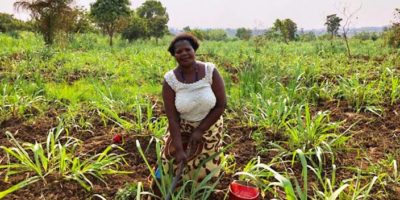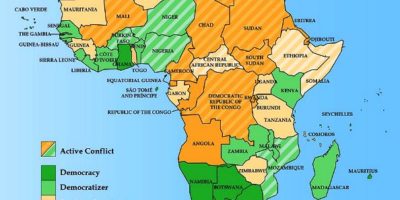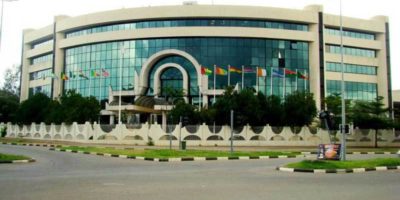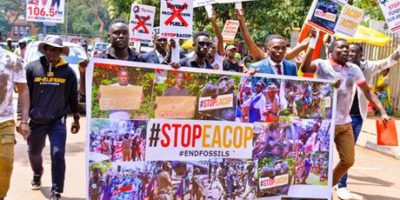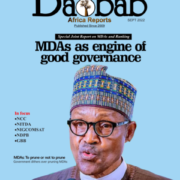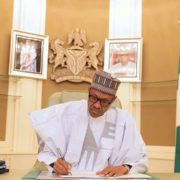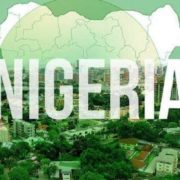Rwanda truly reflects the vast potential of the continent and its future writes SEGUN ORUAME, Kigali.


There are so many ways in which you could look at Rwanda. You could look at it from the perspective of its political leaders and considered it a lucky place where ‘visionful’ leadership has been able to bring effective resource management to bear on the people.
You could also look at the country from its undulating hills, a thousand of it and see only a beautiful tourist destination – that also is the consequence of good leadership. Then you could look at it from the huge numbers of young people, particularly women in government and in private business. You get the titillating picture of a country in a hurry to get its young folks and women involve in nation building.
Just like the thousand hills that define the landmass of Rwanda, you have a thousand perspectives to look at Rwanda 18 years after it gave the world the fastest genocide in history: 800, 000 people cut to death in only 90 days.
Rwanda readily shares its story of triumph over adversity and downtown in Kigali when this writer briefly engaged a middle age citizen during a short walk down a busy street, the man simply ended the short conversation with the words: U Rwanda rurimo Gutera Imbere …. A friend will later interpret the words as ‘Rwanda is moving forward.’
It is 18 years after Rwanda simply collapsed as a country. Genocide and the after effects of hunger, frustrations and complete hopelessness would constitute major setbacks to recovery in the years following 1994.
But in the 18 years since, Rwanda’s recovery has seen its economy outperforming its East African neighbours. As a World Bank report notes: “Rwanda grew at a rapid rate in the second half of 2011, exceeding 10 percent for the first time, since the 2009 global economic downturn. Overall, Rwanda achieved 8.6 percent growth in 2011, and substantially exceeded the average growth for Sub- Saharan Africa (SSA) of 5.0 percent. Rwanda also grew fastest than all the countries in the East African Community (EAC), which as a group reached 6.1 percent in 2011. Robust growth continued in the first quarter of 2012, when Rwanda’s economy expanded at 7.7 percent.”
Two years earlier in 2010, Josh Ruxin, director of Rwanda Works and a Columbia University expert on public health two years ago writes of Rwanda thus: “This nation has shown it can rise from the aftermath of unspeakable violence, and is determined to keep that momentum going and take the next critical steps toward real prosperity. If the past 16 years are any indication, Rwanda can do it.”
What has Rwanda done to get it right? Chief Executive Officer of Lagos based energy research company, P & I Energy Resource Limited, Mr Damilola Imole whose company is considering investing in Rwanda has one of the thousands reasons. He told Baobab Media: “For Rwanda, integrity with transparency is high and the level of corruption tolerance is very minimal. That simply means it gives me peace of mind to know that we can come and can invest here.” That in itself reflects some measure of good political guidance and the willingness of the leadership to set right agenda that would attract private sector offshore investment. Another report notes:
“The Government of Rwanda recognizes the private sector is an essential engine of development and welcomes foreign investment in policy and in practice. As a result of reforms implemented in 2008 and 2009, the World Bank recognized Rwanda as the world’s top reformer in adopting business regulation reforms and raised the country’s ranking in the World Bank “Ease of Doing Business” indicators from 143 in the world to 67, the largest single year increase by any country since the World Bank first published the rankings in 2003. Rwanda now ranks fifth from the top among African nations. The Rwanda Development Board (RDB) was established in 2008 to fast track development projects and to facilitate new investment. RDB consolidates several government agencies previously involved in promoting investment.”
But more than anything else, it is the willingness of the people to move forward; to forgive themselves and to forge ahead. President Paul Kagame himself acknowledged this in his interview with Baobab Media. He said: “We value our people first of all. Our people were the ones who fought different wars and struggled to put things right; to get rid of what was wrong and what led to our tragic history and therefore it is the same people that we must bring together to write a different story about Rwanda and create history.”
Rwandans are steadily re-writing their own story. In the past 18 years, Rwanda has moved from being on its knees to become one of “Africa’s most dynamic and fastest growing economies” writes Steve Terril in the Global Post. With a population of about 11 million occupying a mere 10,000 square miles of land, Rwanda has the highest population density in sub-Saharan Africa. Rather than be a burden,Rwanda under President Kagame’s watch has been able to turn its population density to asset by focusing on tourism and services industry to create well over a million jobs.
A Rwandan Household Living Conditions Survey released by the government earlier this year, states that about “one million Rwandans have been lifted out of poverty in just five years.” Also as quoted by Terill, “the International development expert, Paul Collier, author of “The Bottom Billion,” called the Rwandan statistics “deeply impressive” and said that Rwanda had pulled off a rare “hat trick” of rapid growth, sharp poverty reduction and reduced inequality.”
It is the kind of success stories coming out of Rwanda that is making the world to look at Africa a second time. Increasingly, the image of the continent as a long dark tunnel is giving way to that of a continent in ‘painful but sweet’ transition. The image of war and starvation is giving way to the image of a bustling economy and a growing middle class with more spending power.Rwanda gives a peep into the future of Africa. And it is of a continent rising, as aptly captured by a November 2012 edition of Time magazine with the title Africa Rising, the same title was used by The Economist magazine about a year ago to depict the rising economies of African countries. Only a decade ago, The Economist had described Africa as squalor.
Rwanda truly reflects the vast potential of the continent and its future. This small country has the best kept secret of the greatness of a continent that is rediscovering itself. You only need to visit Rwanda to discover that the theme of Joseph Conrad’s Heart of Darkness, one of the fallacies European authors conceived to misrepresent colonial Africa to the outside world, is fast ebbing and the new themes of growth and possibilities that Kagame and his ilk are fostering provide the vitality of a truly rising continent. Want a proof? Visit Rwanda!

